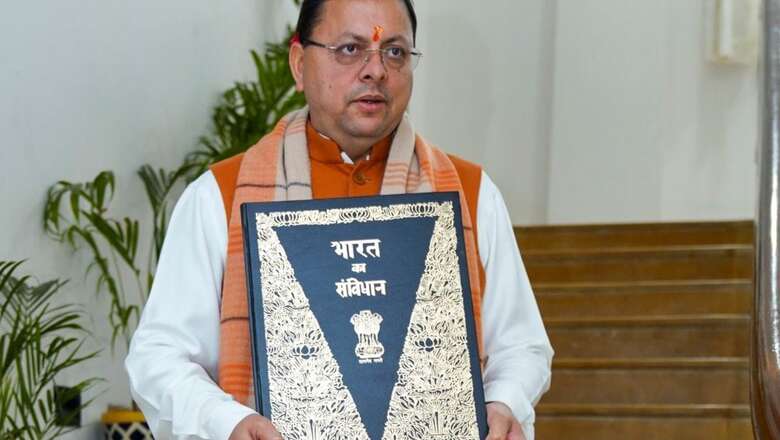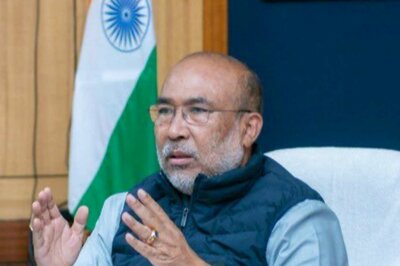
views
Pandit Pawan Krishna Shastri is a staunch BJP supporter. He can’t thank the Narendra Modi government enough for turning the Ram Mandir dream into reality. The Haridwar priest is also all praise for the Pushkar Dhami government’s move on the Uniform Civil Code (UCC) but can’t fathom why the provisions on live-in relationships have been included in “an otherwise progressive law”.
“This live-in related law is a western influence… we should discourage it rather than get couples to register themselves,” he told News18 at Har ki Paudi.
Liaqat Ali, a Roorkee resident, is on the same page on the issue. “The proposal for registration of live-in relationships is wrong. The government should do away with this system fully. Why are they giving it legal backing?” Ali asked.
The criticism across communities is for the provisions introduced for live-in couples in the Uttarakhand UCC.
Section 378 of the code asks for submission of statement by partners in a live-in relationship to the registrar in their area. For Uttarakhand residents living outside the state, such a registration statement has to be given to the registrar concerned under whose jurisdiction they are living.
The code gives power to the registrar to carry out ‘summary enquiry’ to ascertain if:
-The consent of one of the partners was obtained by force, coercion, undue influence, misrepresentation or fraud concerning the identity of the other partner.
– If any of the live-in partners is a minor or already married.
Section 384 of the code makes it obligatory on the live-in partners to inform the registrar in case they end the relationship.
Even though the Bill says that the intimation by live-in couples is only ‘for the record’, it adds that the registrar must forward the details to the local police station.
Soni Ror, a social worker in Roorkee, says the registration is much needed to protect girls like Shraddha Walkar, who was killed and dismembered in Delhi by her live-in partner.
“Raja ki zimmedari hai praja ka dhyaan rakhna…With changing time, the law must change. Today, live-in relationships are in but look at what happened to Walkar. If live-ins were registered, she may have lived. People should fear the law,” he told News18.
However, on social media platforms, the provision for punishment for live-in couples who fail to register is attracting maximum criticism.
“Anyone staying in a live-in relationship for more than a month without getting it registered will be punishable with an imprisonment up to three months or a fine of up to Rs 10,000 or both,” the Bill says.
It adds that a higher fine, apart from an imprisonment of up to three months, can be imposed on any person who provides false information in his or her statement on a live-in relationship to the registrar.
Saurav Das, an X user, posted: “The State is now inside your bedrooms, requiring you to “register” who you love, where you love, when you started loving, when the love ended. This is moral policing given state sanction.”
He questioned how the law will be enforced and if this will lead to moral policing. “How exactly can the state/police practically enforce this law? What if you live-in but are not in a relationship? Or there are frequent break-ups and patch-ups? Or if you are in a situation-ship? What about same-sex couples? In a system that is so marred by widespread perjury, how exactly will an already overburdened criminal justice system seek the truth here?” Das said.
Ayush Tewari called the provision “interference by the state” and argued that none of the modern democracies have provisions of registration for live-in couples.
Similar posts saw criticism on grounds of moral policing, harassment of inter-faith couples and encouraging vigilantes.
However, BJP MLA Trilok Singh Cheema defended the move. Speaking in the assembly in favour of the Bill, Cheema said: “I am personally not in favour of a bad marriage so live-in and the registration is a progressive move I think.”
The UCC Bill is likely to be passed in the Uttarakhand Assembly on Wednesday. A gazette notification is likely post the passage, notifying the rules for the law.



















Comments
0 comment